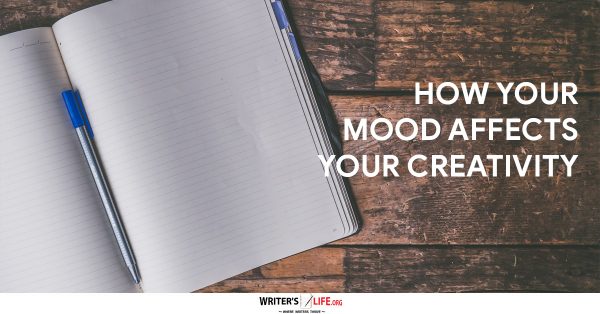- How To Tackle Jealousy In Creative Writing
- Common Submission Mistakes
- How To Stop Your Blog Becoming Boring
- The One Thing Every Successful Writer Has In Common
- How To Make Yourself Aware Of Publishing Scams
- Why Almost ALL Writers Make These Grammar Mistakes At Some Point
- 5 Tips For Authors On How To Deal With Rejection
- Top Mistakes to Avoid When Writing a Novel
- How to Avoid Common New Writer Mistakes
- 10 Mistakes New Fiction Writers Make
How Your Mood Affects Your Creativity

Writing productively means being at your most creative self. However, being creative when you are not in the right frame of mind is incredibly difficult. As writers, we are told how important it is to get into a writing routine, and to write every day if possible, but our mood can sometimes stand in our way.
Mood effects so much of what we do. Our relationships and interactions with people, our productivity, how we see and value ourselves and how we see and value the world. A negative mood can affect our energy, our sense of self-worth and mean that we don’t engage with people and opportunities as we should. A negative mood can also be very distracting meaning we don’t focus on what we want to focus on, instead of letting the thing or things that are bothering us take over and cause chaos.
Likewise, if we are in a positive mood, this can also change our perception and affect how we act. A happy mood can make us feel excitable, energetic and we are more likely to view the world as a positive place, to notice opportunities and to let things that would usually bother us slide. However, a happy mood doesn’t necessarily mean a productive one either. Happiness can make us dreamy and distracted too.
There is no escaping that our mood can affect how and what we write and it is therefore essential to pay attention to this and harness it to make our writing better.
A particularly foul mood might not be the best mindset to write a beautiful love scene, for example.
A furious battle or spiteful fight, however, might turn out better if we are feeling a little dark when we attempt to write it.
A particular mood could make the outcome of a story entirely different. It may spark a different sort of creativity in us and take us to places we did not think we were going. A writer in a particularly happy mood might find it so hard to access the darker recesses of their emotions that instead of writing that murder scene, that heartbreaking chapter, and so on, they instead show mercy and change the plot, so the story takes a different, more light-hearted track.
Accessing deep feelings is vital for any writer, and being able to translate how we feel into our work to make our characters emotionally engaging is a great act of creativity and skill. However, the relationship between our mood and our creativity is an elegant and delicate balance. We may at one moment feel excited and inspired, and the next feel frustrated and begin to question our ability.
Of course, an extreme mood, either way, is going to be challenging to write in. In these moments it might be best to abandon your writing project but instead, try to capture the emotions you feel separately - and see if the can be used at a later date or for a different piece of work.
Feeling confident and relaxed can be a good place to write in, though too comfortable and one’s attention may not be as focused as it could be. Heightened emotions can make us feel more poetic and creative while giving us the motivation necessary to focus on our writing at the same time
A writers creative output will no doubt change with their mood, and writers can expect to feel energized, smart, frustrated, stupid and demotivated, perhaps all in a single sitting. Perhaps the key is maybe not to battle your mood, but instead to flow with it and hope that your creativity can emerge regardless.
How does your mood affect your writing? Let us know here!

Bethany Cadman -author of 'Doctor Vanilla's Sunflowers'





























